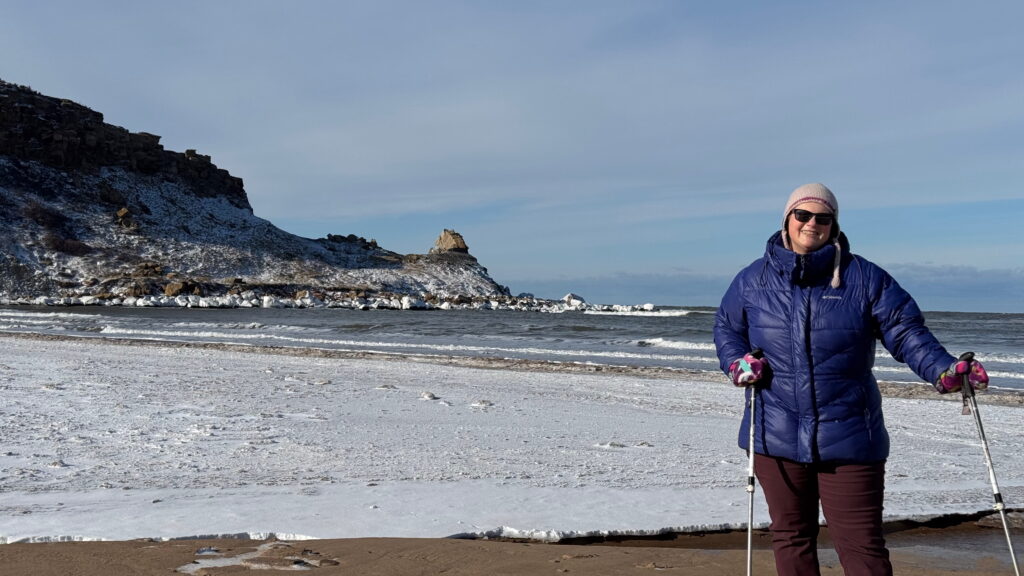I have found that support groups are a mixed blessing. I have been going to two face-to-face groups, but also have ‘connected’ support groups on Facebook. The face-to-face and online groups provide different kinds of support, and I find that I need both.
The online groups provide day-to-day support and often give me quick answers to questions. These are not necessarily the answers to the types of questions you get from your doctors, but rather more real-life suggestions that make it easier to deal with the unknown and help better prepare for what is to come. For example, it never would have occurred to me to rent a hospital bed for a month, to make sleeping after surgery easier. Many people sleep in loungers, and others use wedge pillows. The general problem is that for the first few days after surgery, the ability to sleep horizontal is a challenge. I found this an issue with my port, so I anticipate it to be worse with surgery. So, now we are looking into renting a fully electric hospital bed for a month – which is truly the best of all worlds – they deliver and pick-up, and insurance might actually cover at least part of the cost. It is a much better solution than a lounger (which we don’t need), and will be cheaper too.
I’ve gone to two face-to-face groups, one for those who are newly diagnosed and in treatment, and another for young people with breast cancer. As I’m an extrovert and know very few people in the area, it is a challenge for me to get enough face-time with real people. So, face-to-face support groups give me energy – they feed me. However, timing is a challenge. The groups meet either Saturday afternoon or a weekday evening. The Saturday afternoon is often better, but as we have discovered camping to be a blessing, we shall try to do more of it, making me miss Saturday afternoon groups. Evening groups are a challenge (at least while on AC chemo) as I cannot drive home afterwards – so I need someone to come and sit for two hours (or longer) while I am in group, as I cannot guarantee that I will be able to drive home afterwards. The other challenge with the evening groups is that being around people gives me energy – then I have a hard time winding down and sleeping afterwards. Given that since chemo I have typically been in bed around 9 – 9:30, groups that often run past 9:30 and are a half hour drive home, making the drive and sleeping difficult.
Then there is the group itself. In the newly diagnosed and in-treatment group, I’m often the youngest person there. I have a young person cancer, so I often have one of the more aggressive stories (although not always – we have lots of rareness in our group). More interestingly, I can relate to the older women better on a professional level, as many of them are self-employed or professionals.
The young cancer group is full of inspiring women, but their challenges are different and they often have more aggressive cancers. It is difficult to hear women with metastatic disease speak of their journeys as they learn to accept and not fear death and those with aggressive cancers whose prognosis is in the ‘single digits’. This is much more the case with young women with breast cancer, as young cancers tend to be more aggressive in nature. I’m also one of the oldest people in the group – as I sit at that boundary. Young breast cancer is considered “under 45”, and I’m 43. So I am definitely at the edge. I’m also in a very different place professionally. Given that this is the group that meets in the evening, I find it especially difficult. Last night I came home charged with energy from being around people, but also struggling with depression as the reality of my journey sinks in (I’m thankful I’ll be seeing the cancer psychiatrist tomorrow).
With this, I’ve come to a difficult decision not to attend the face-to-face young persons groups anymore (at least not for the time being). Although there are many encouraging women in the group, it does not leave me with the feelings I need. It may be doing me more harm than good. I will stay connected with the women through the Facebook group, as I find it a good virtual group, but the face-to-face is just too challenging (it is also the group that meets in the evenings and often runs overtime, so it is too logistically and physically demanding for me at the moment).
I will make every effort I can to make the Saturday afternoon group. It has been a very supportive group. It is smaller, and rarely runs overtime. Since the group is smaller, we have more time to share and more time to ask questions, so it provides better support for me. I come home from the group feeling energized and generally in a better spirits. So, it is the group that is feeding what I need and not what I don’t. I’m also hoping we can get a Facebook group going, as I’d love the opportunity to connect with these women more outside of the 90-minutes once per week that we meet.

Leave a Reply